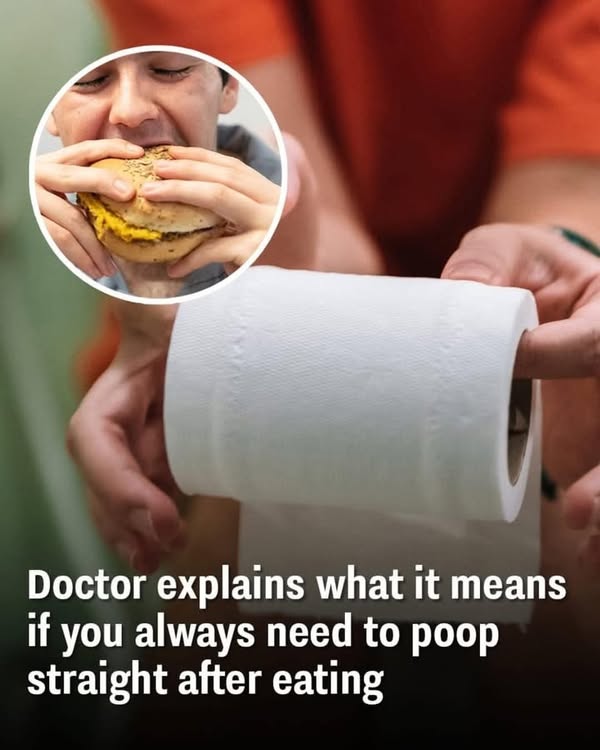
1. Gastrocolic Reflex – A Natural Response
The gastrocolic reflex is a normal reaction in which the stomach communicates with the colon after eating. When food enters the stomach, the digestive system releases hormones that signal the colon to contract and move waste toward the rectum. This is the body’s way of making space for new food.
- Some people have a stronger gastrocolic reflex than others, making them feel the urge to poop almost immediately after eating.
- This reflex is more active in infants but can persist into adulthood, especially in people with sensitive digestive systems.
2. Food Sensitivities and Intolerances
Certain foods can trigger rapid digestion, leading to urgent bowel movements. Some common causes include:
- Lactose intolerance: If your body lacks the enzyme lactase, it cannot properly digest lactose (found in milk and dairy). This can cause bloating, diarrhea, and an immediate urge to poop.
- Fructose intolerance: Some people have difficulty digesting fructose, which is found in fruits, honey, and processed foods.
- Gluten sensitivity or celiac disease: Eating gluten (found in wheat, barley, and rye) can trigger diarrhea and discomfort in people with celiac disease or gluten sensitivity.
- High-fat foods: Greasy, fatty meals stimulate the digestive tract and can cause loose stools.
3. Irritable Bowel Syndrome (IBS)
IBS is a common digestive disorder that affects how the intestines function. People with IBS often experience:
- Abdominal pain or cramping
- Bloating and gas
- Diarrhea or constipation
- Urgent bowel movements after eating
IBS can make the gastrocolic reflex more intense, leading to frequent or sudden pooping after meals. Certain foods, stress, or hormonal changes can trigger IBS symptoms.
4. Caffeine and Artificial Sweeteners
Certain substances in your diet can act as natural laxatives, speeding up digestion and making you poop quickly:
- Caffeine (found in coffee, tea, and energy drinks) stimulates the muscles in the digestive tract, increasing bowel movements.
- Artificial sweeteners like sorbitol, mannitol, and xylitol (found in sugar-free gum and diet products) can have a laxative effect.
5. Infections and Digestive Disorders
If you suddenly develop an urgent need to poop after eating, it could be a sign of an infection or a digestive disorder:
- Food poisoning or stomach infections: Bacteria, viruses, or parasites can cause diarrhea, nausea, and abdominal cramps.
- Inflammatory Bowel Disease (IBD): Conditions like Crohn’s disease and ulcerative colitis cause chronic inflammation in the intestines, leading to frequent diarrhea.
- Hyperthyroidism: An overactive thyroid speeds up metabolism, including digestion, which can cause frequent bowel movements.
6. Anxiety and Stress
Your brain and gut are closely connected through the gut-brain axis. Stress, anxiety, or nervousness can activate the digestive system, leading to:
- Increased gut motility
- More frequent bowel movements
- Diarrhea in stressful situations
Some people experience stress-induced diarrhea or an urge to poop before important events due to their body’s heightened response to stress.
When Should You See a Doctor?
Occasionally pooping after eating is not a problem if it doesn’t cause discomfort. However, you should seek medical advice if you experience:
- Persistent diarrhea that lasts more than a few days
- Blood in your stool (red or black stool)
- Unexplained weight loss
- Severe abdominal pain or cramping
- Symptoms of dehydration (dizziness, dry mouth, fatigue)
Pooping right after eating is usually caused by the gastrocolic reflex, but it can also be linked to food intolerances, IBS, infections, stress, or other digestive conditions. If it happens frequently and disrupts your daily life, consulting a doctor can help identify any underlying issues and find the best treatment.


